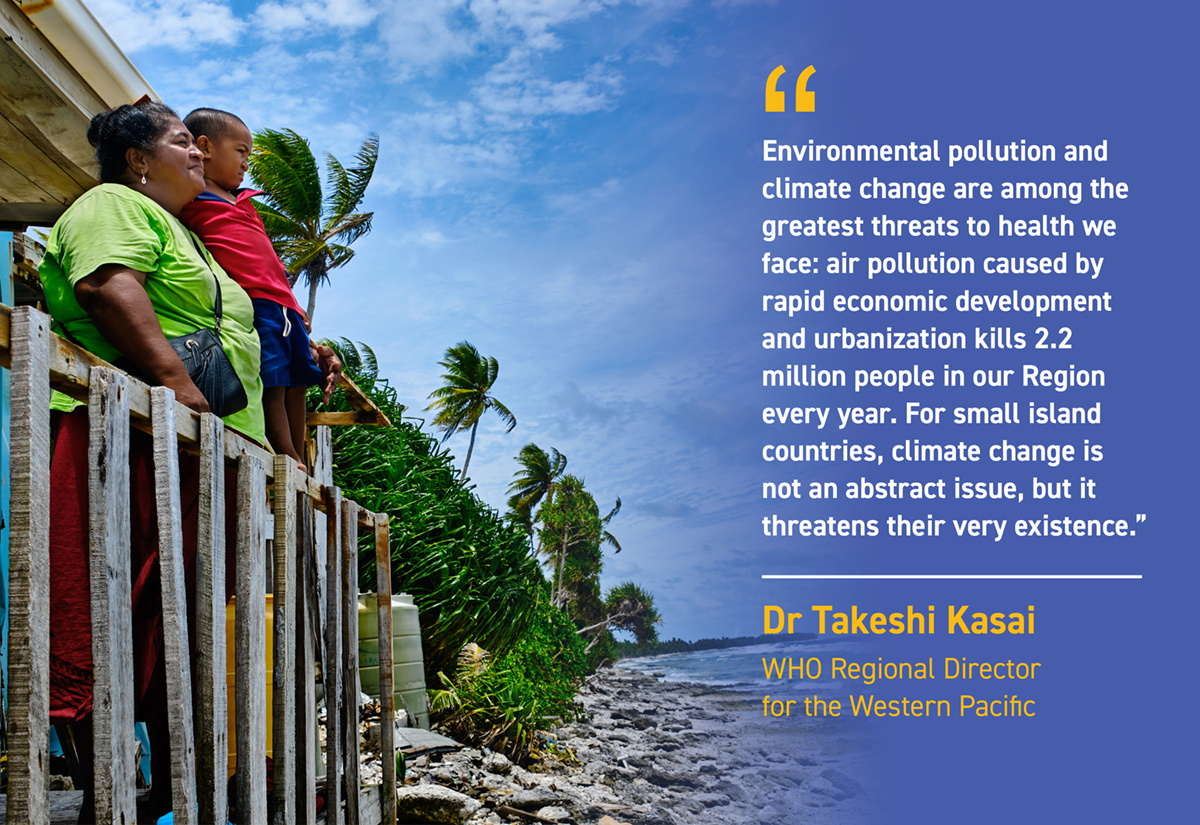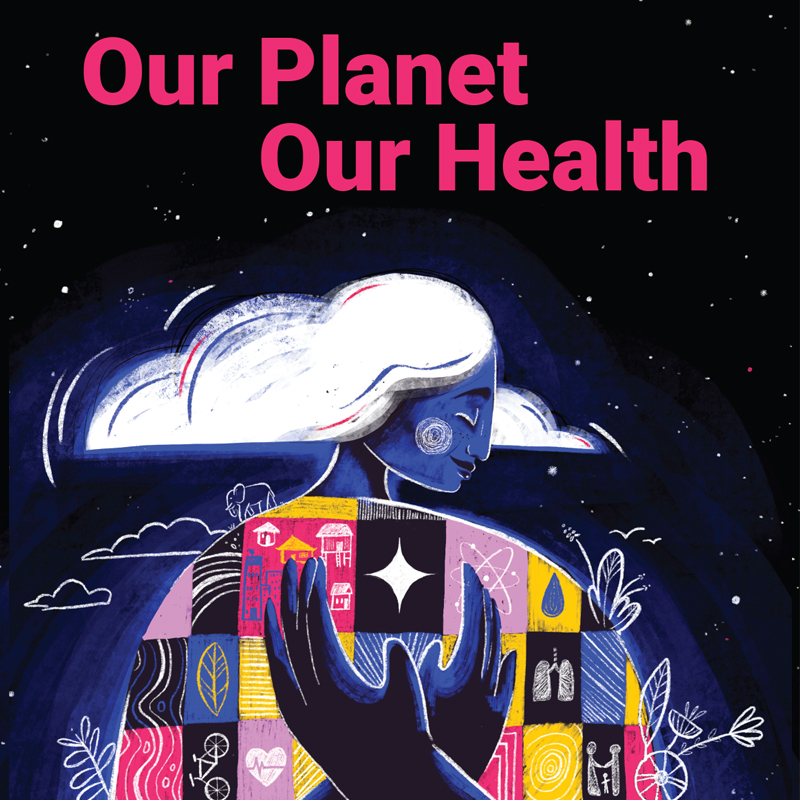Our planet, our health
Are we able to reimagine a world where clean air, water and food are available to all?
Where economies are focused on health and well-being?
Where cities are liveable and people have control over their health and the health of the planet?
In the midst of a pandemic, a polluted planet, and increasing incidence of diseases like cancer, asthma and heart disease, on World Health Day WHO will focus global attention on the urgent actions needed to keep humans and the planet healthy,
and foster a movement to create societies focused on well-being.
The climate crisis is the single biggest health threat facing humanity. Each year 3.5 million people in the Western Pacific die as a result of environmental causes, like air pollution, extreme weather events or waterborne diseases. Every 14 seconds a person dies from air pollution in the Western Pacific, and over 90% of people breathe unhealthy levels of outdoor air pollution, largely resulting from the burning of the same fossil fuels that are driving climate change.
Every year, small island developing states (SIDS), including Pacific Islands countries and areas, make up two thirds of the countries in the Western Pacific Region that suffer the highest relative losses from disasters. Rising sea levels and increasing tropical storms are reducing access to fresh water, degrading beaches and reefs, taking the land where homes and hospitals once stood, and, ultimately, threatening the lives and livelihoods of the people in the Pacific.
Health systems on these islands are the main line of defence not only against COVID-19 but also against the impacts of climate change. Increases in vector-borne diseases like dengue and malaria, food and safe drinking water insecurity, land degradation and extreme weather events will only further strain these health systems and disproportionately impact the most vulnerable.
Today, pollution and plastics are found at the bottom of our deepest oceans and the highest mountains, and have made their way into our food chain. Systems to produce ultra-processed, unhealthy foods and beverages are driving a wave of obesity and increasing cancer and heart disease while generating a third of greenhouse gas emissions. Currently more than 93 million children in the Western Pacific are overweight or obese.
Protecting people’s health from climate change requires transformational action in every sector, including on energy, transport, nature, food systems and finance. Breaking these cycles of destruction for the planet and human health requires legislative action, corporate reform and individuals to be supported and incentivized to make healthy choices.
It’s time for us to take action for Our Planet, Our Health.

Reimagine a #HealthierTomorrow
Learn more about actions individuals, governments, businesses, healthcare workers and communities can take to improve our health and our planet.
Related videos:





